Activity Highlights
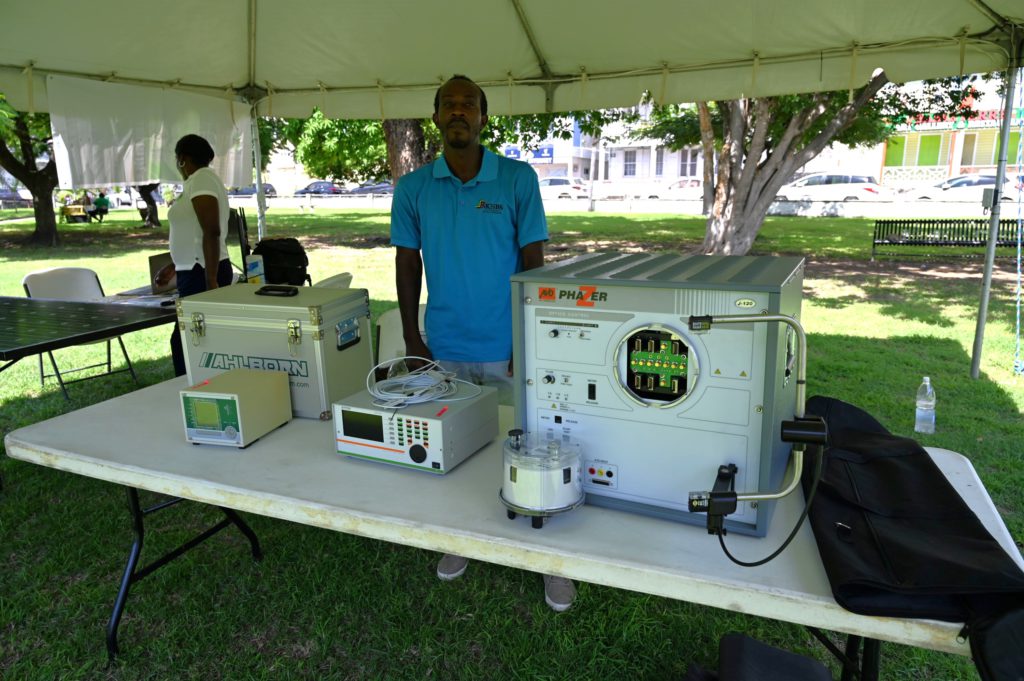
SKNBS Participates in Energy Fair
Today, November 15, 2024, the St. Kitts and Nevis Bureau of Standards (SKNBS) participated in an Energy Fair in observance of CARICOM Energy Month.
The fair was held under the theme “Invest in Sustainable Energy: Accelerate the Transition” and highlighted Renewable Energies, Energy Conservation and Energy Efficiency.
The St. Kitts and Nevis Bureau of Standards (SKNBS) plays a crucial role in promoting energy efficiency and sustainability. One of our key responsibilities is establishing energy efficiency labelling for electronics, ensuring that consumers are informed about the energy consumption of their electronic devices such as refrigerators.
Additionally, recognising the interconnectedness of fuel and energy, the Bureau emphasizes its metrological role in verifying fuel pumps to ensure accuracy and fairness in fuel dispensing. By adopting and implementing energy standards, the Bureau supports the development of policies and legislative processes that drive the nation towards a more sustainable and energy-efficient future.
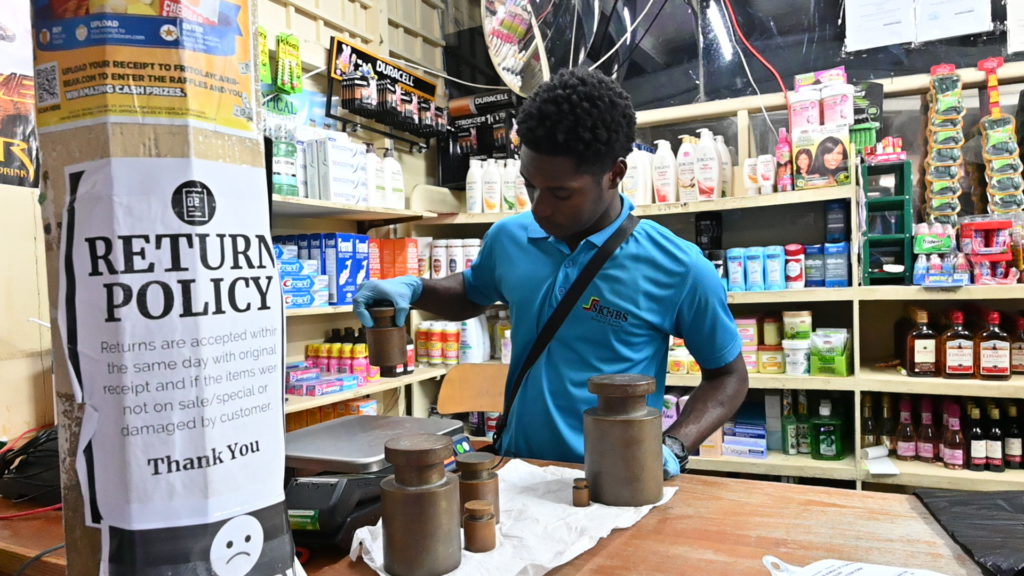
Ensuring Accurate Measurements Across Nevis
The Metrology Department’s dedicated technical officers recently visited Nevis to conduct a routine verification of scales at various shops.
This essential process ensures that all scales meet the highest standards of accuracy, providing peace of mind for both businesses and consumers.
HPLC Training at SKNBS (July 2024)
Several staff members of the St. Kitts and Nevis Bureau of Standards (SKNBS) recently underwent training in using the newly acquired High-Performance Liquid Chromatography (HPLC) machine. HPLC is a technique in analytical chemistry used to separate, identify, and quantify each component in a mixture.
The new HPLC machine will assist agro-processors in analyzing nutritional content, detecting residues and toxins in food, and identifying hidden compounds in solutions.
Additionally, the equipment will support the work conducted in other labs at the bureau, enhancing the overall quality and accuracy of their analyses.
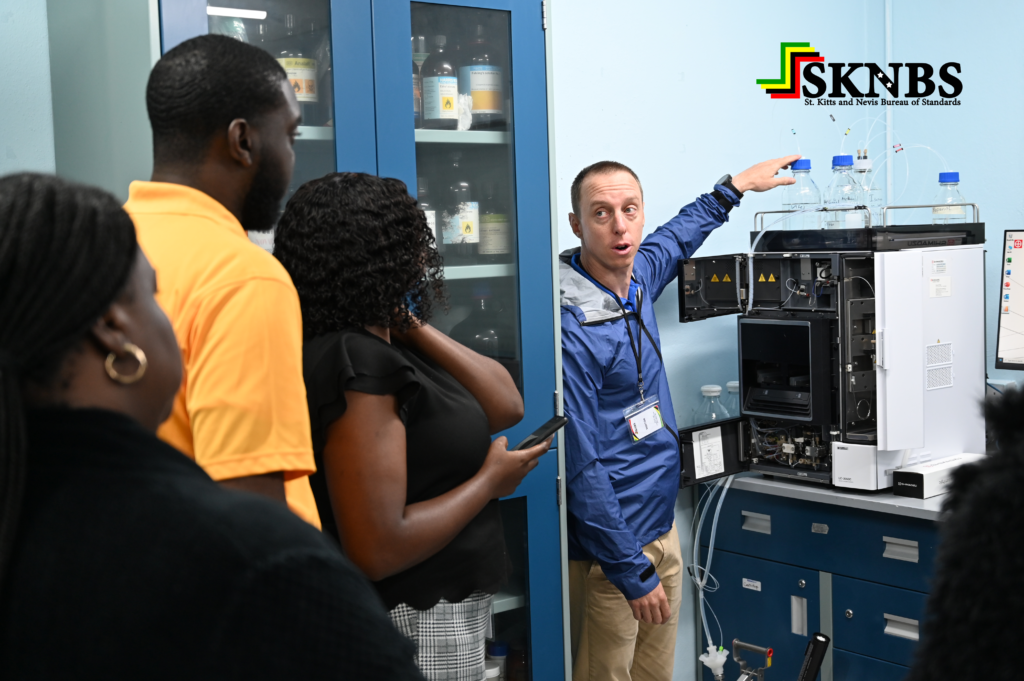
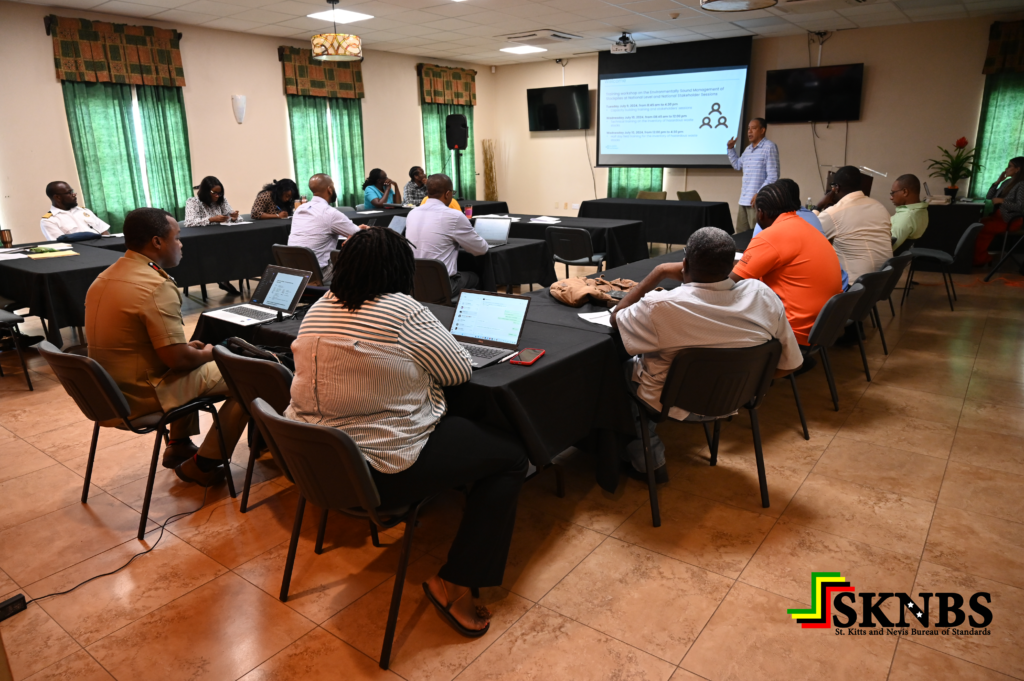
St. Kitts and Nevis Hosts Key Workshop for Global GEF ISLANDS Programme on Chemical Management
From July 09 to 10, 2024, St. Kitts and Nevis hosted a workshop as part of the GEF ISLANDS programme, aimed at promoting the environmentally sound management of chemicals and wastes in Small Island Developing States (SIDS). Organized by the Basel Convention Regional Centre for Training and Technology Transfer for the Caribbean (BCRC-Caribbean) and funded by the Global Environment Facility (GEF), the workshop focused on identifying and developing disposal strategies for hazardous chemicals. It included national assessments and capacity-building sessions for stakeholders in the waste management sector, emphasizing the importance of safe and effective hazardous waste management to protect human health and the environment.
Head of Metrology attends June 2023 CARIMET meeting in Guyana
The first face-to-face Caribbean Metrology Cooperation (CARIMET) Committee Meeting and Workshop was hosted by the Guyana National Bureau of Standards (GNBS) in Guyana from June 28 to 29, 2023.
The CARICOM Regional Organisation for Standards and Quality (CROSQ), under the 11th European Development Fund Technical Barriers to Trade Programme sponsored the two-day event.
It was held to effectively plan for the implementation, monitoring and improvement of the measurement infrastructure within the CARICOM region.
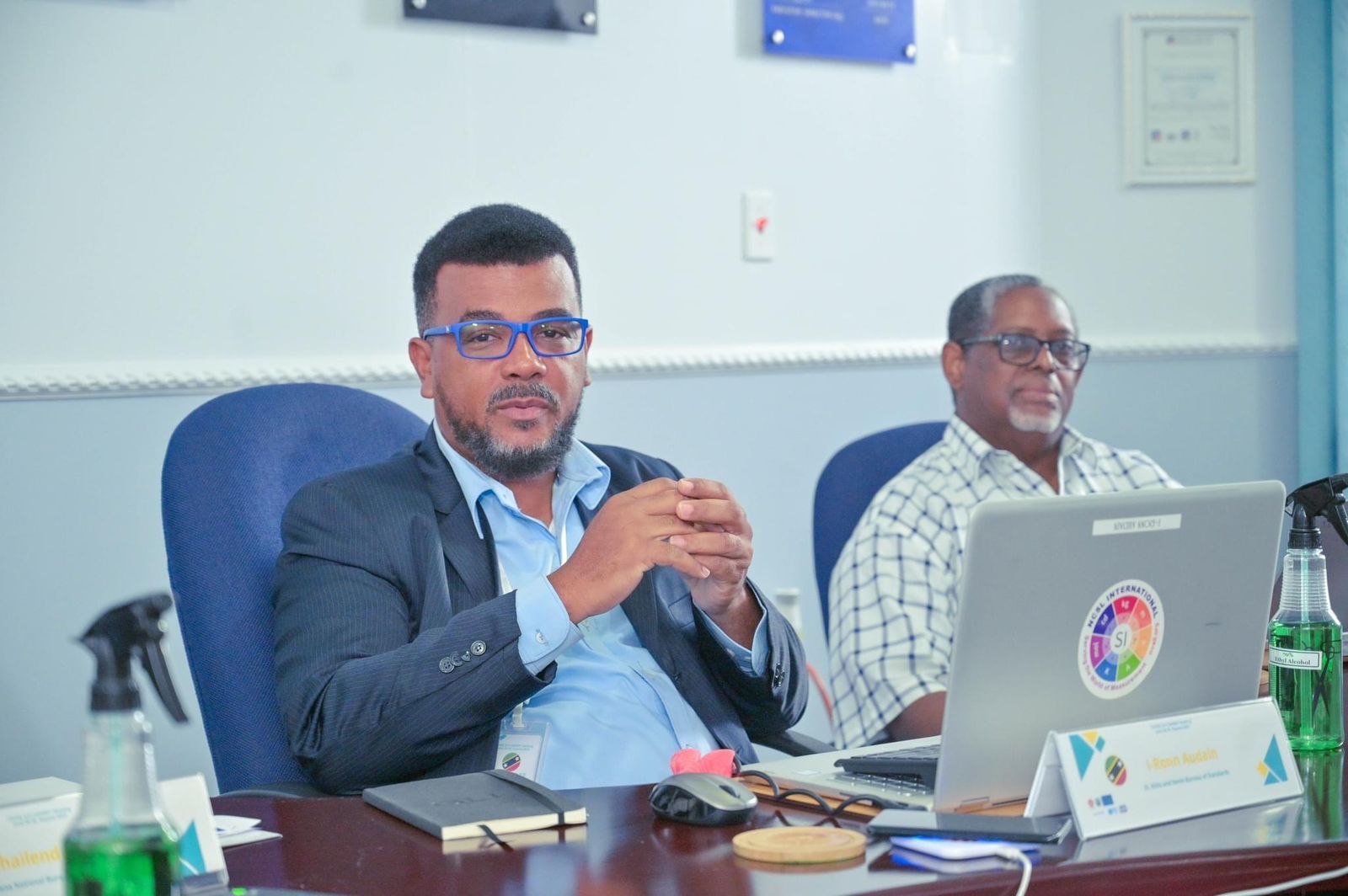
St. Kitts and Nevis invited to study tour on End-of-Life Vehicles (ELVs) Management in Le Gosier, Guadeloupe
As a beneficiary of the Basel Convention Regional Centre for Training and Technology Transfer for the Caribbean (BCRC-Caribbean), St. Kitts and Nevis was invited to a study tour on End-of-Life Vehicles (ELVs) Management in Le Gosier, Guadeloupe.
The representatives from St. Kitts and Nevis included Mr. Franklyn Connor of the St. Kitts and Nevis Bureau of Standards (SKNBS) and Mr. Lexington Bedford, Landfill Director.
The June 13 to 14 2023 tour was an opportunity for country representatives to observe best available techniques and best environmental practices for End-of-Life Vehicles management in the Region. The study tour was supported and facilitated by project partners from the Directorate of Environment, Planning and Housing in Guadeloupe under the leadership of Mr. Phillippe Wattiau, Head of the Sustainable Development and Environmental Assessment Mission.
The visitation sites included:
Energiopole and DEAL: At these sites, the End-of-Life Vehicles (ELVs) and e-waste goes through the process of being separated and shredded down to its final product for shipment to France to make steel and other products.
GwadaPark: High Density Polyethylene (HDPE) plastic is ground and mixed with rubber crumb, which is derived from tire processing. With this mixture, 100 percent recycled soil stabilization slabs are produced. Products are also manufactured from the by-product of sugarcane, bagasse.
The Basel Convention Regional Centre for Training and Technology Transfer for the Caribbean (BCRC-Caribbean) serves as the executing agency for the Global Environment Facility (GEF) funded Caribbean Projects (GEF 10279, GEF 10472 and GEF 10258) under the GEF-funded program entitled “Implementing Sustainable Low and Non-Chemical Development in Small Island States (GEF-ISLANDS)”, implemented by the United Nations Environment Program (UNEP), Food and Agriculture Organization of the United Nations (FAQ) and Inter-American Development Bank (IDB).



